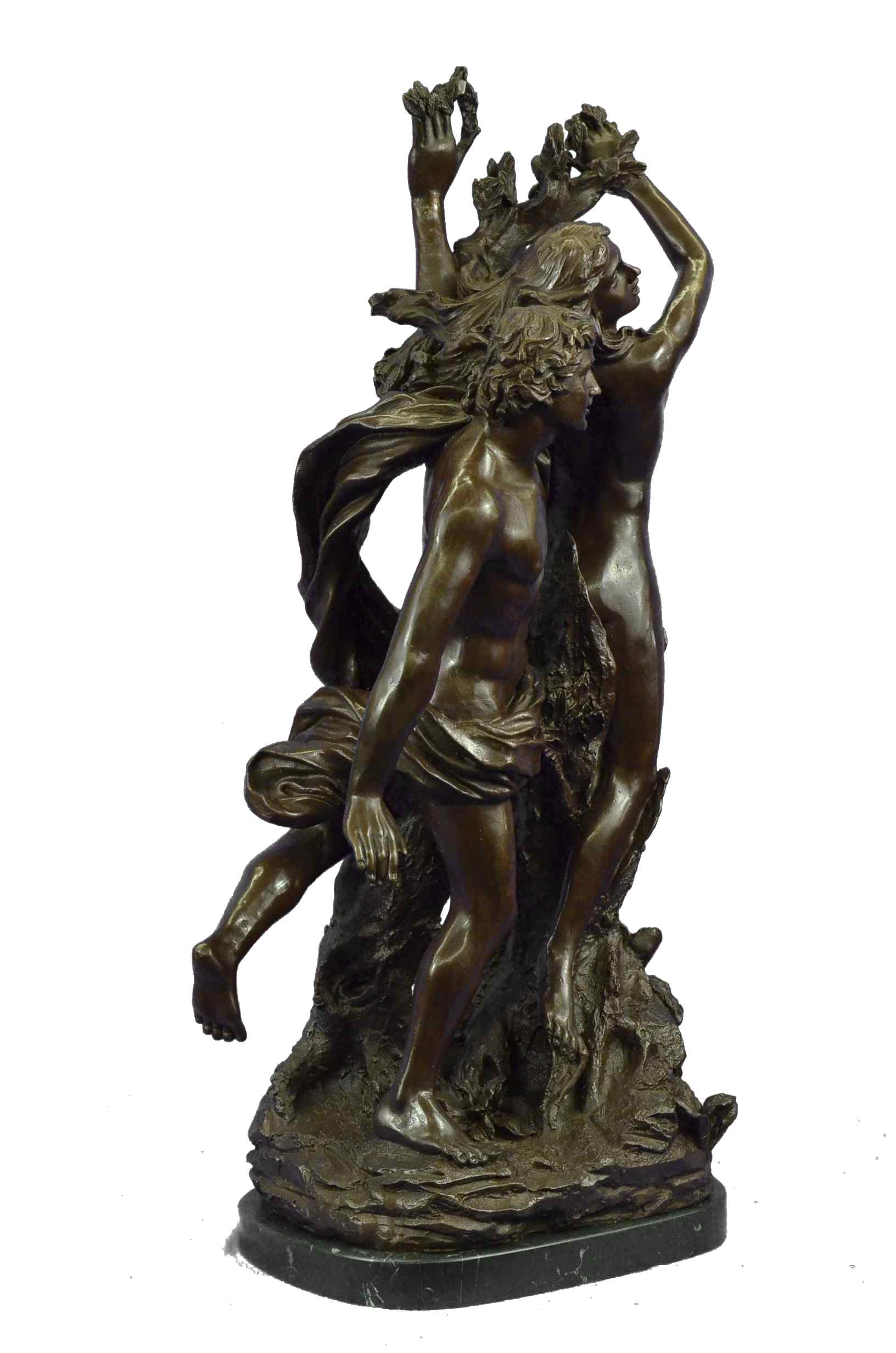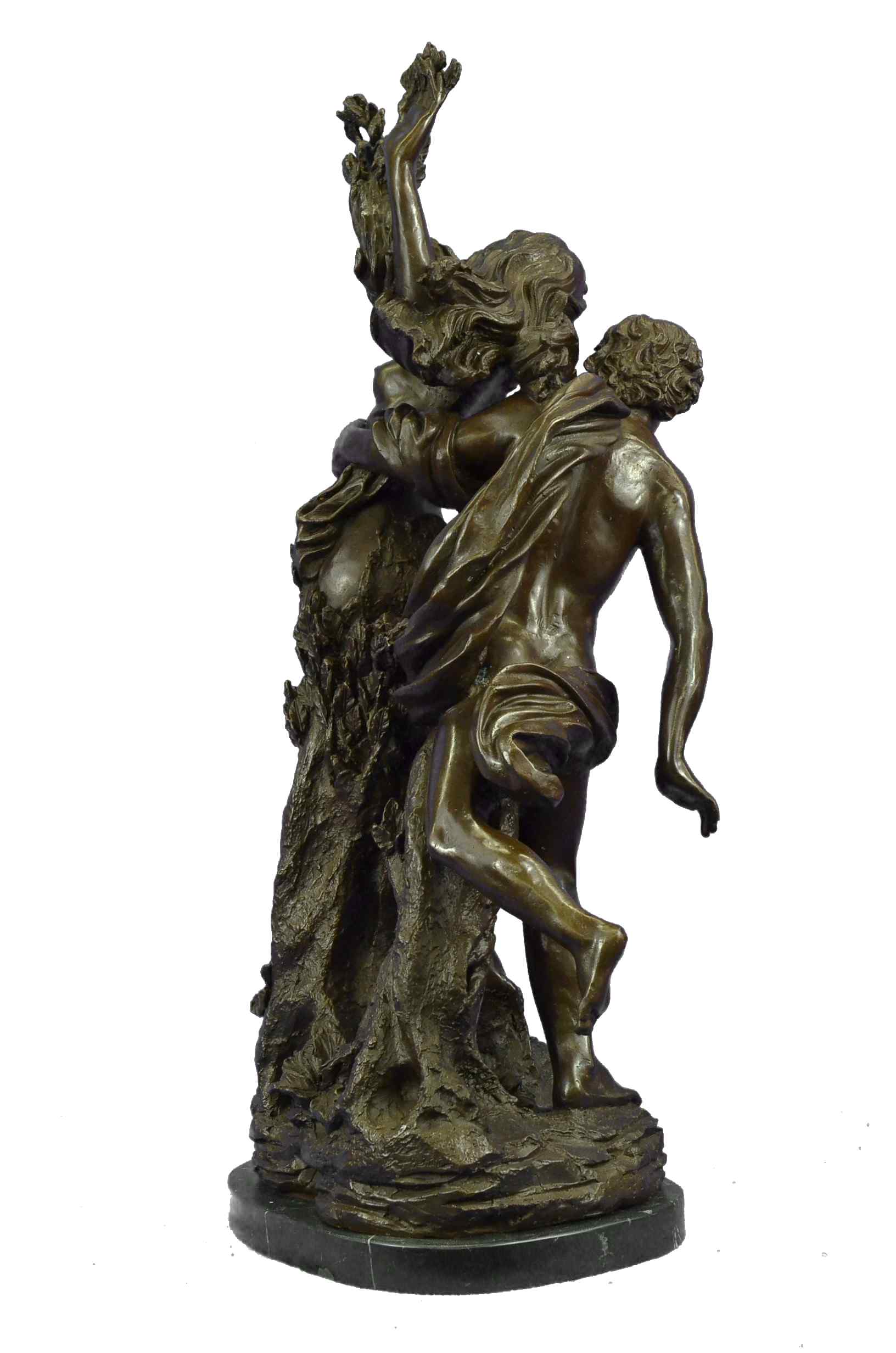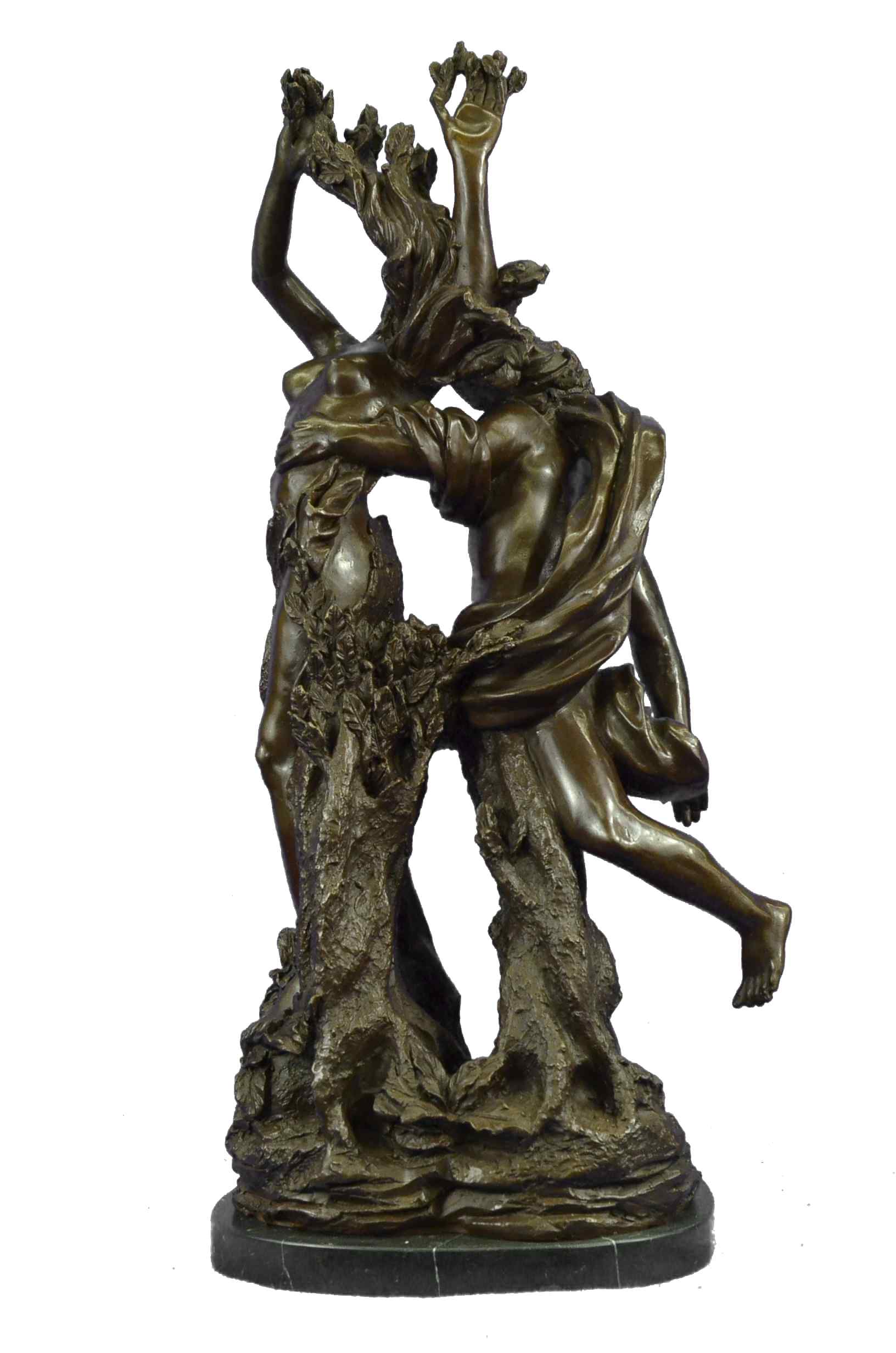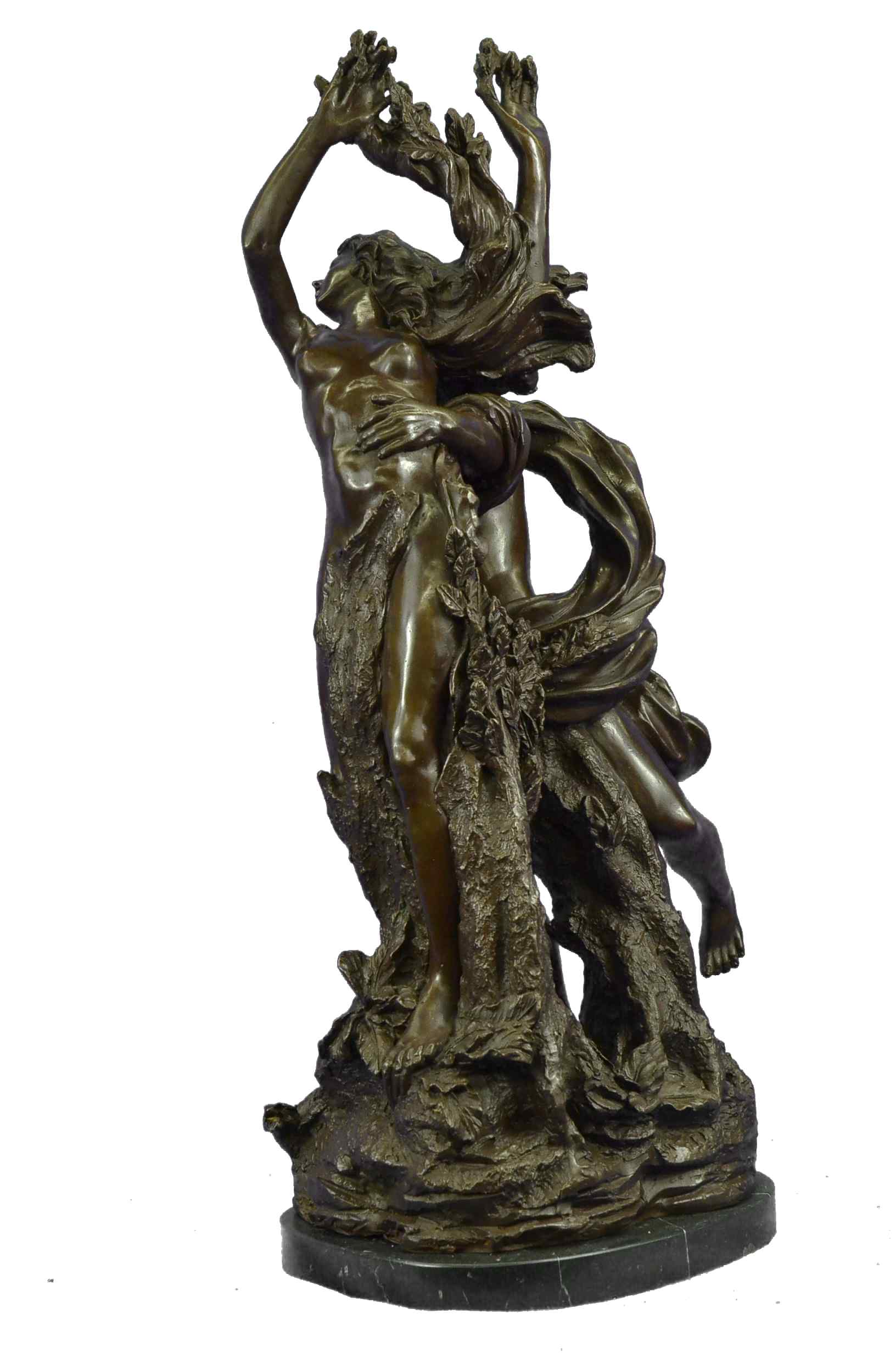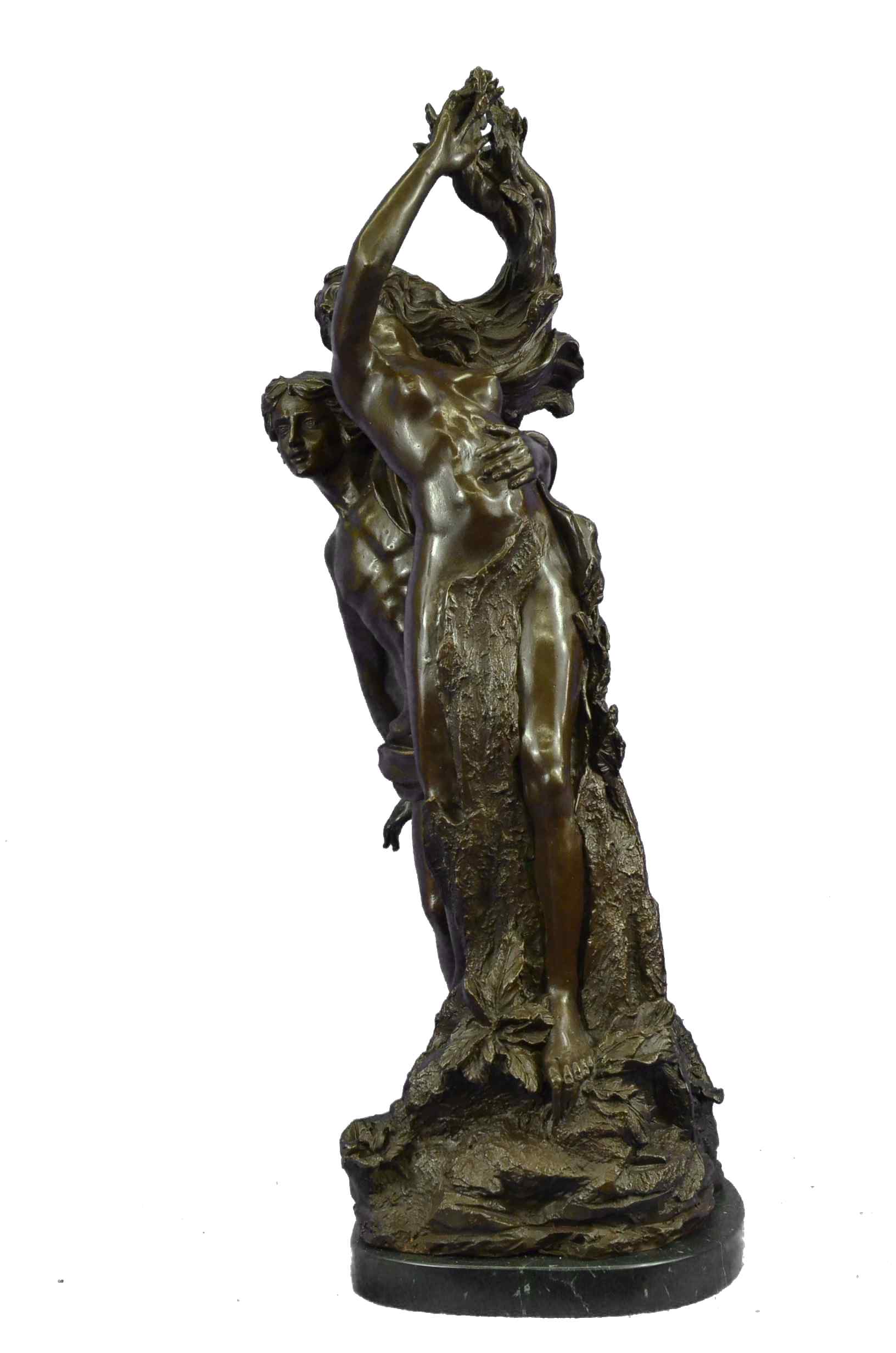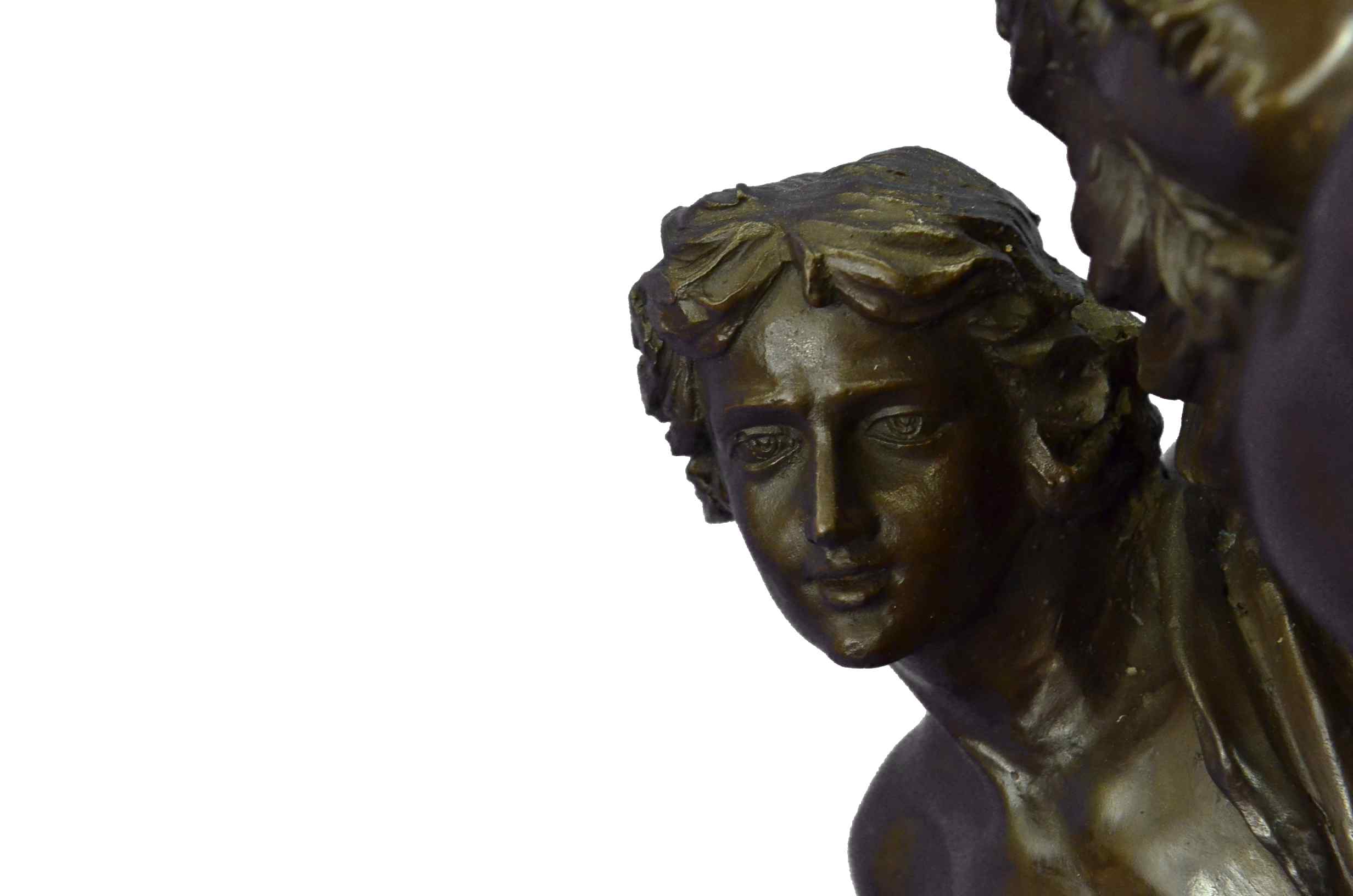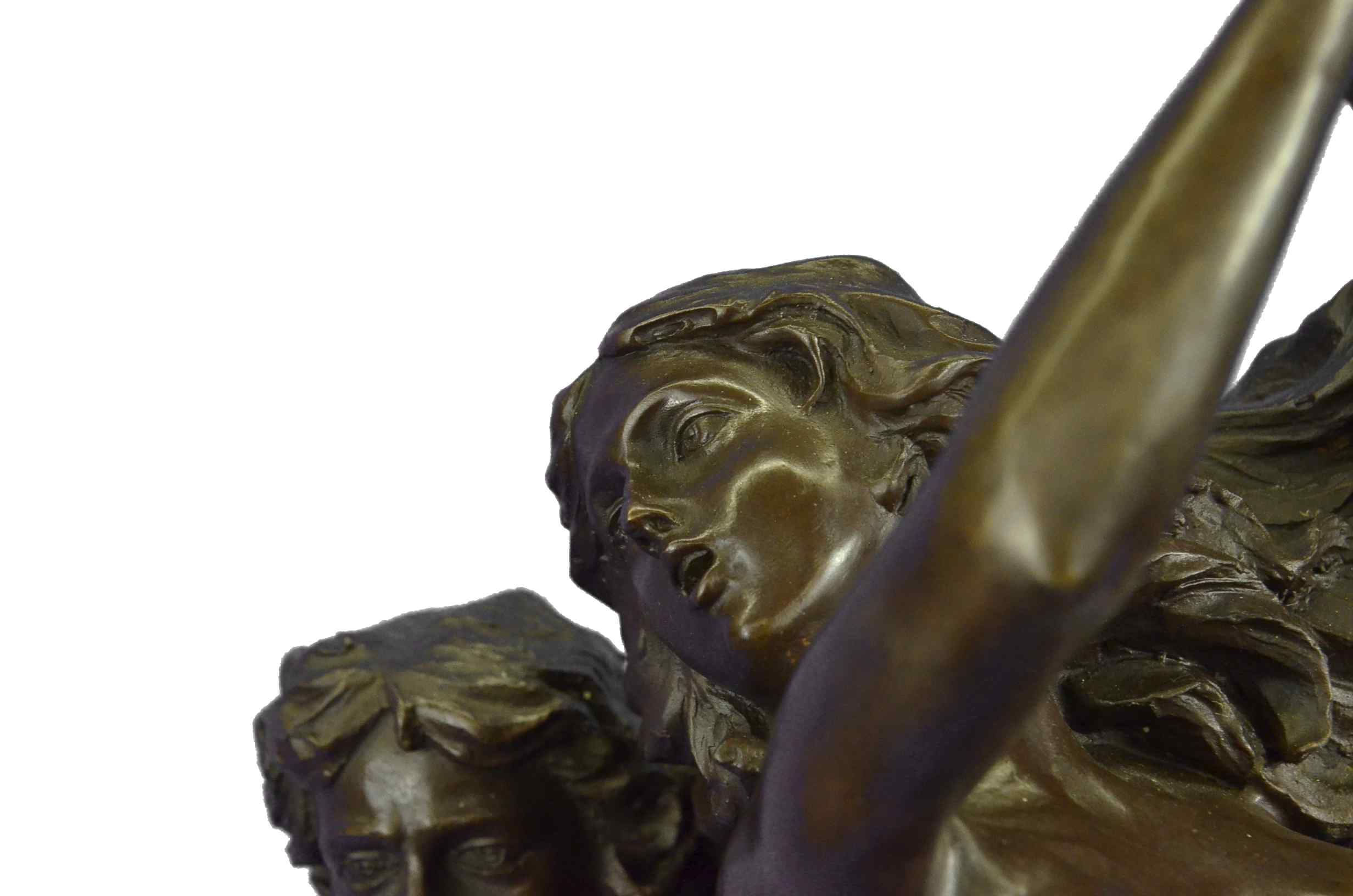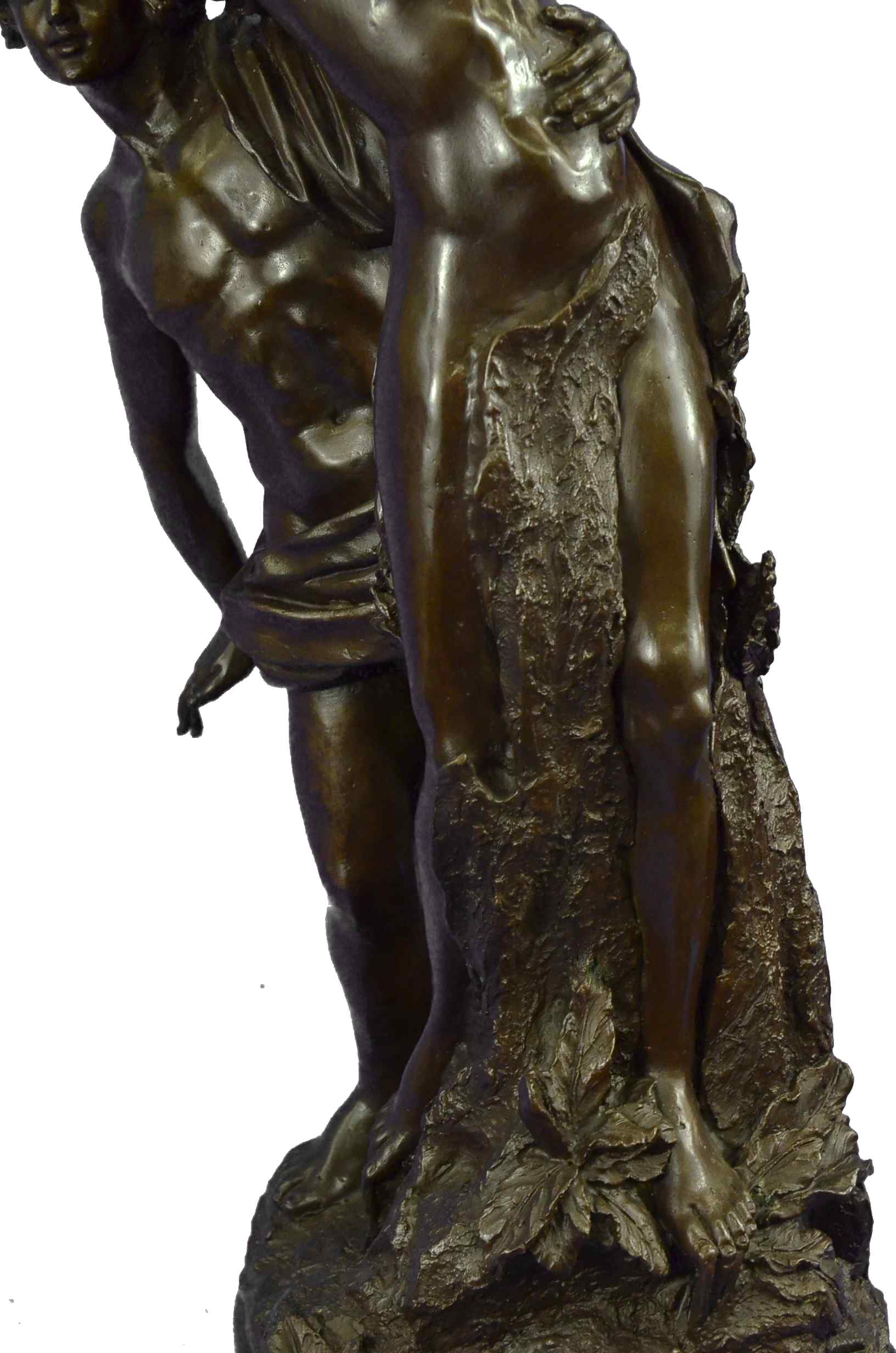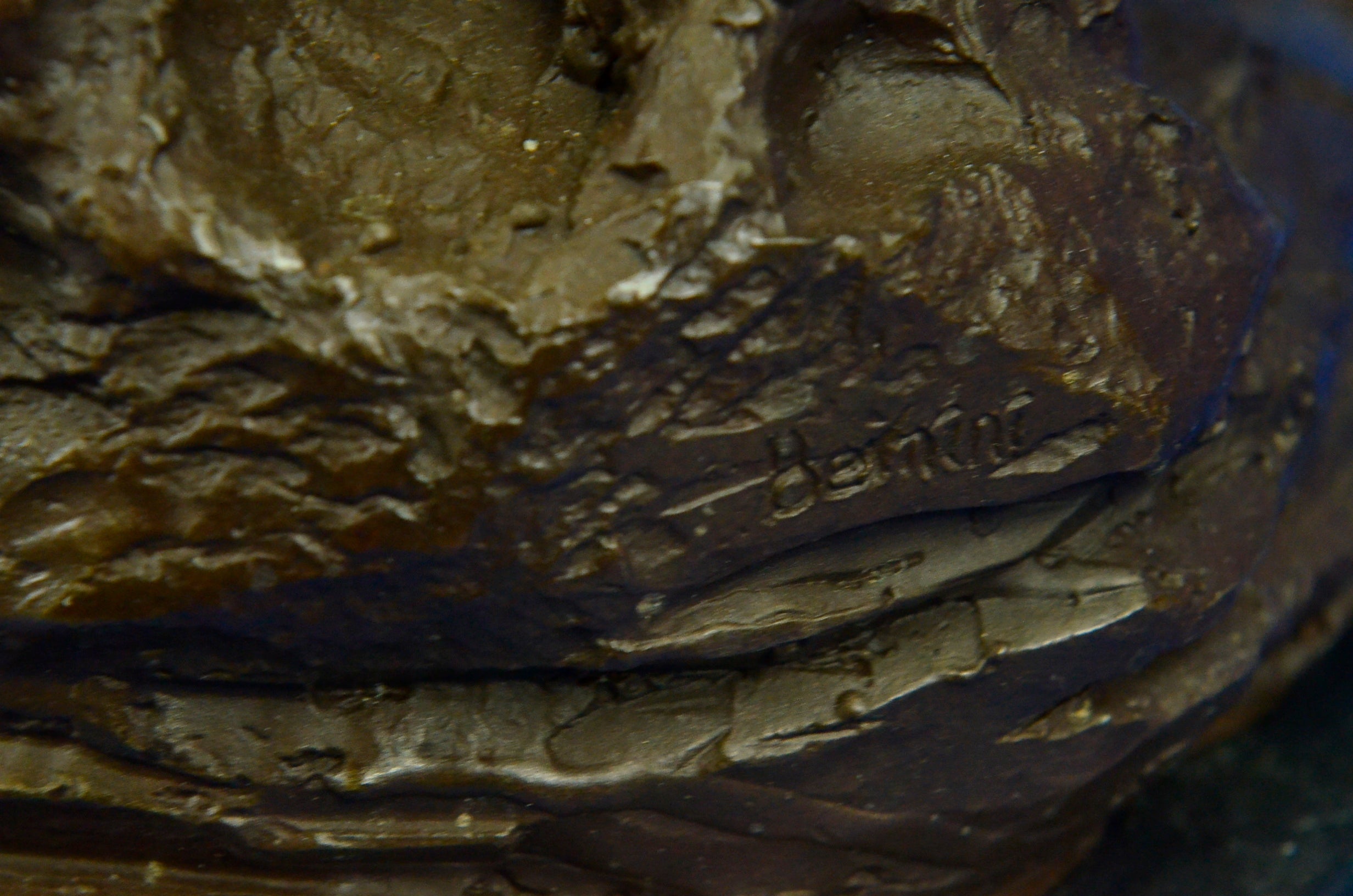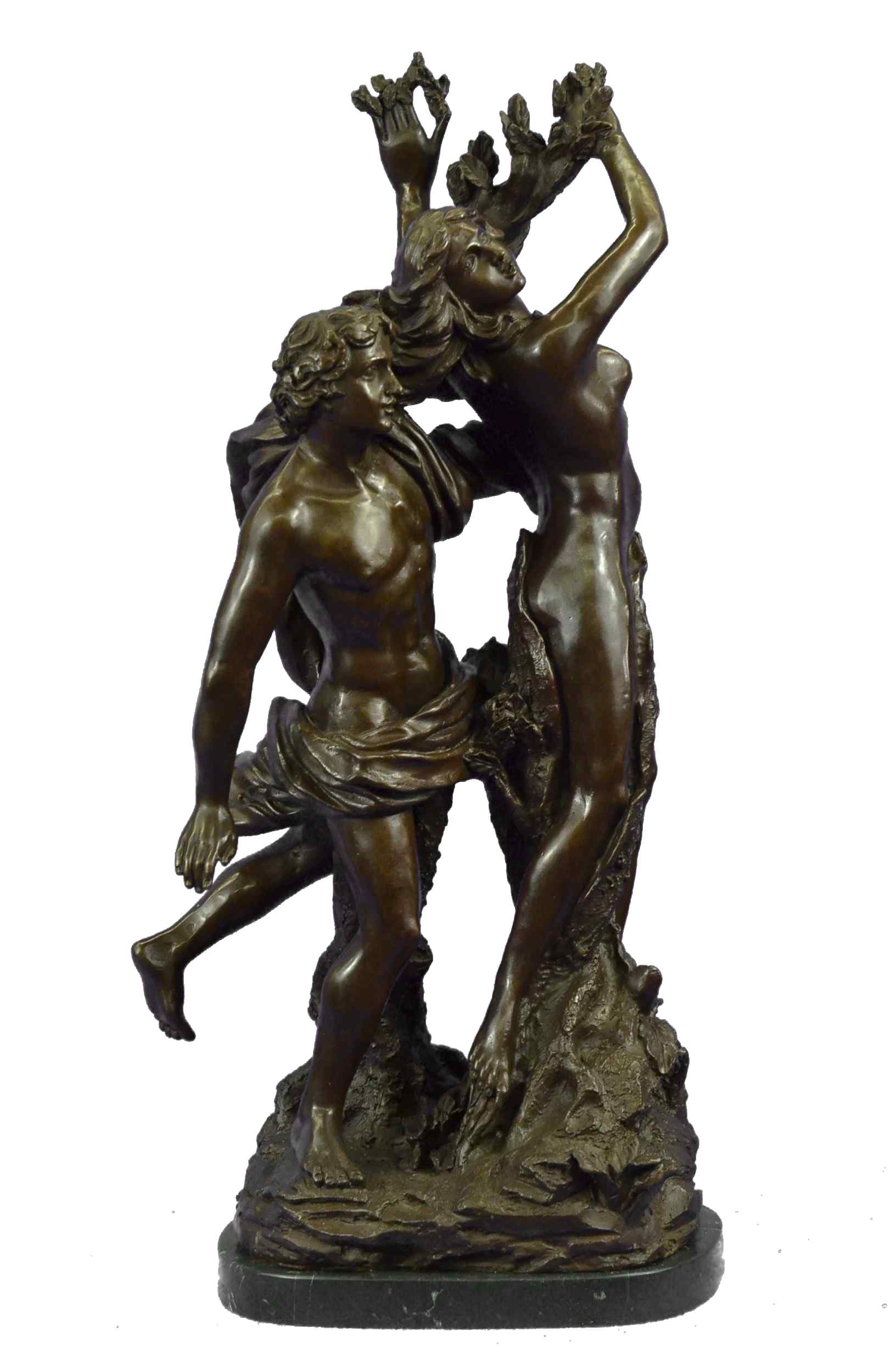Extra Large 75 LBS Apollo and Daphne Mythical Greek Mythology Bronze Sculpture
$1,199.00
Unit price
/
Unavailable
SKU: XN-0726
Condition: This sculpture is in perfect condition. Bronze Dimensions with Marble Base:Height 31" x Width 20" Marble Dimensions: Diameter 12". Height without base: 30" Weight : 75 LBS Inventory : 43XN072630634 SALE
Original or Reproduction: Reproduction
This is a bronze replica of Apollo and Daphne (1622-25), a baroque, life-sized marble sculpture by Italian Gian Lorenzo Bernini, housed in the Galleria Borghese in Rome. It was inspired by one of the stories included in Ovid`s Metamorphoses. In the story, Apollo, god of prophecy, sees the young Eros, god of love, playing with his bow and arrows and remarks, "What have you to do with warlike weapons, saucy boy? Leave them for hands worthy of them." In avengement for this reproach, Eros wounds Apollo with a golden arrow, causing him to fall in love with the nymph daughter of the river god Peneus. Eros additionally wounds the beautiful nymph Daphne, with a lead arrow, thus insuring she would not be wooed by Apollo`s advances. The arrow`s power was so strong that Daphne forthwith refused all of her lovers. Apollo, struck with the golden arrow of love, pleads with Daphne to fulfill his desire. Daphne begins to flee. Even as she runs, he is more captivated by her beauty. Apollo grows impatient and soon, sped by Eros, gains on her. With slower speed and failing strength, Daphne cries out to her father just as Apollo captures her. Not a moment later, Daphne`s skin turns to bark, her hair leaves, her arms branches, her feet roots, and her face a treetop. In only a moment, Peneus protects his daughter by turning her into a laurel tree. After the transformation Apollo still embraces the tree. He cuts off some of her branches and leaves to make a wreath and proclaims the laurel as a sacred tree. Bernini`s sculpture captures Daphne`s transformation with intense emotion and drama by portraying the different stages of her changes. The interlocking components and chiaroscuro create more narrative, reflecting foundations of Hellenistic Greek art. The sculpture was cast using the ancient method of lost-wax casting and stained with a brown patina finish for preservation. The dueling pair are mounted upon a black marble base with the artist Bernini`s signature.Original or Reproduction: Reproduction
Let customers speak for us
Subscribe to our newsletter
Promotions, new products and sales. Directly to your inbox.

